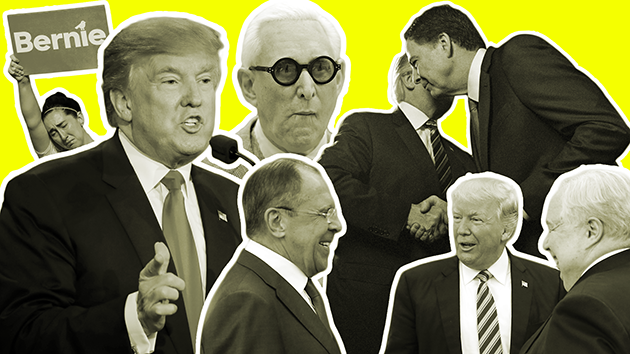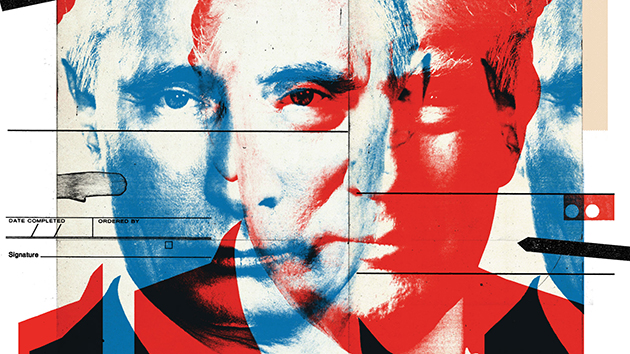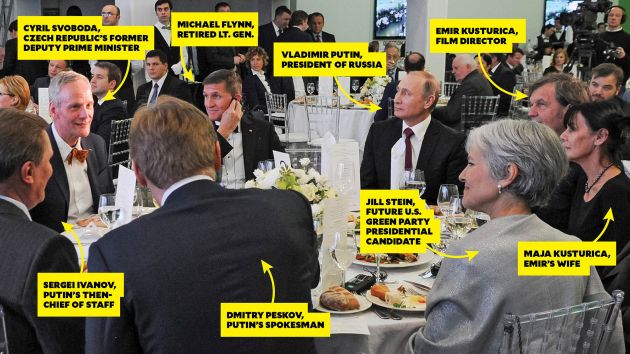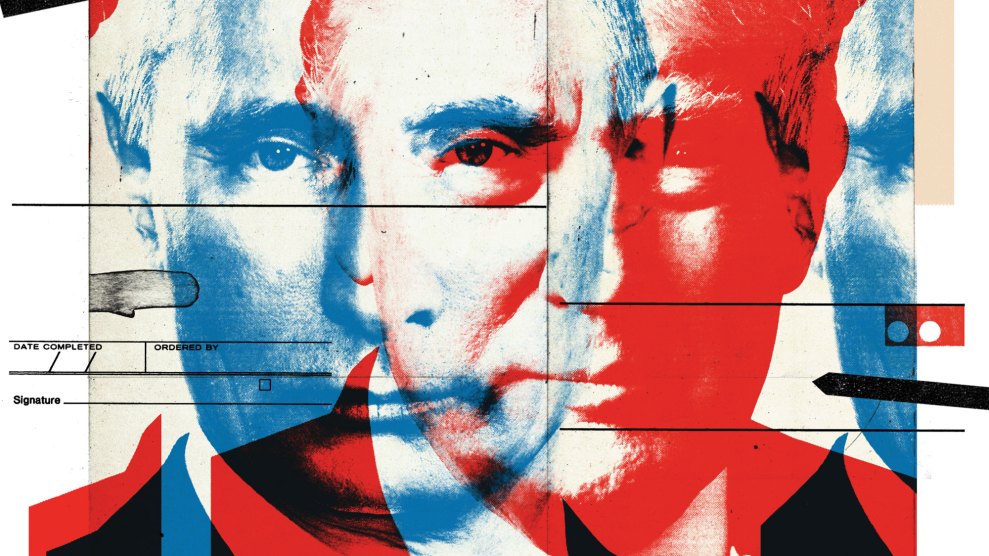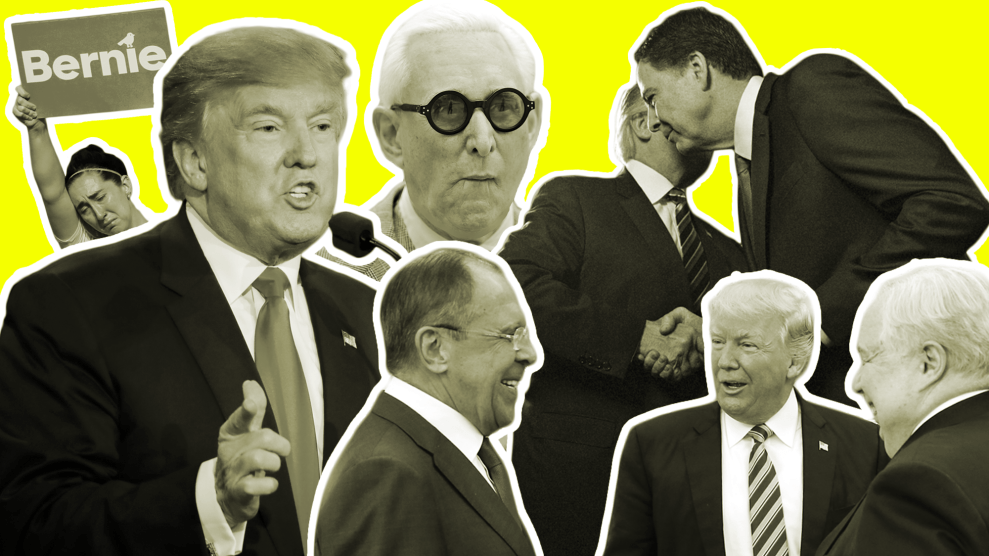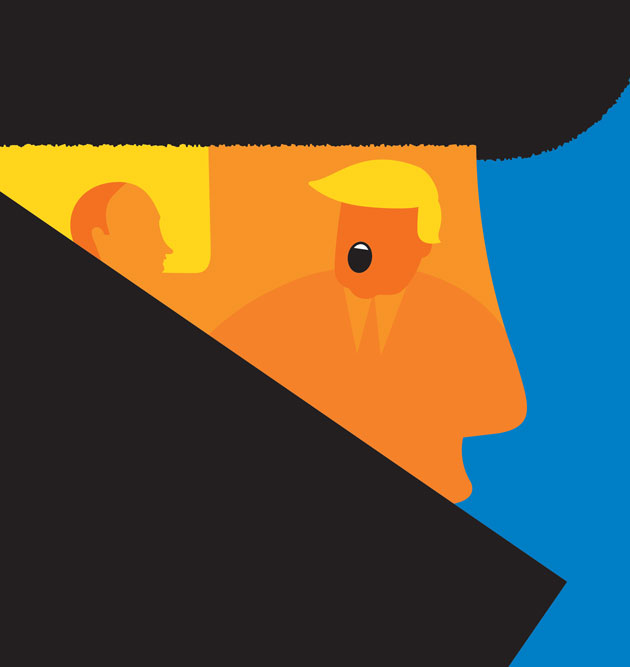
Keeping track of the relentless news on the widening Trump-Russia investigation—from revelations about the president’s inner circle to the role of Russian oligarchs and other assorted players—isn’t easy. As part of our project to cover this scandal, we’ve assembled dossiers on the sprawling cast of characters who populate this stranger-than-fiction controversy threatening to engulf the presidency. We’ll be adding to and updating these, so check back regularly.
Donald Trump
Despite his claims to the contrary, the president’s ties to Russia are long, deep, and, above all, mysterious. In the 1980s, before the Soviet bloc crumbled, Trump was already trying to get a foothold behind the Iron Curtain. Since then, he has on at least three occasions announced plans to build a Trump Tower in Moscow in partnership with various power players and oligarchs. Before his campaign came under investigation by the FBI and assorted congressional committees, the mogul happily touted his Russian dealings: “I’ve done a lot of business with the Russians,” he once bragged to David Letterman.
Trump’s relationship with Russia, and his refusal to condemn the Kremlin as evidence of its election interference became clear, raised questions during his campaign. Not only did Trump praise Vladimir Putin, but his campaign pushed to remove a plank from the Republican Party platform that called for arming Ukraine in its fight against Russian forces.
He also surrounded himself with aides and advisers with curious Russian connections, including lobbyist Paul Manafort and little-known consultant Carter Page, who traveled to Moscow at the height of the presidential campaign to deliver a speech critical of US foreign policy. That same month, a former British spy and Russia expert named Christopher Steele, who had been hired by a US research firm to look into Trump’s Russia ties, grew so worried by what he was finding that he provided his intelligence reports to the FBI. Mother Jones was the first outlet to report on the existence of the memos and the spy’s effort to get them into the hands of American authorities. Steele’s dossier contained a series of hair-raising—though as yet unverified—claims: Russia had been cultivating Trump for years, it possessed blackmailworthy material on Trump of a sexual nature, and the Trump campaign may have colluded with the Kremlin as it mounted a hacking operation to tarnish Trump’s opponent.
The president has called the Russia scandal a “hoax” drummed up by the “fake news media,” and said, “Russia has never tried to use leverage over me.” But he has grown increasingly enraged by the various investigations swirling around him and his associates, denouncing them as a “witch hunt.” At one point, his White House, with the help of House Intelligence Committee Chairman Devin Nunes, staged a clumsy effort to redirect the controversy to Obama administration surveillance. As the scandal snowballed, Trump abruptly fired James Comey, the FBI director overseeing the bureau’s investigation into ties between Trumpland and Russia. But far from disappearing, the scandal is poised to define Trump’s presidency. It could even end it.
Vladimir Putin
Despite a once-hopeful move toward democracy, Russia can’t seem to shake its Soviet legacy. A major reason is the former KGB spy and USSR functionary who has led modern Russia for most of its 26-year existence. Putin is rumored to be one of the richest men—if not the richest man—in the world. Not bad for a guy who has spent his entire career in government service. After graduating from law school in 1975, he entered the KGB and ascended rapidly, eventually becoming the head of the FSB, the KGB’s successor organization, in 1998. Putin’s rise in politics was even more rapid: In 1999, he was named deputy prime minister and then acting prime minister by President Boris Yeltsin; months later, when Yeltsin resigned, he became acting president. He has led the country ever since.
Many Russia experts believe Putin’s main goal is to restore Russia’s place in the world as a major power by challenging the dominance of Western democratic values. This goal fueled the Kremlin’s 2014 annexation of Crimea from Ukraine, Russia’s opposition to Eastern European countries joining NATO or the European Union, and more recently a campaign by the Kremlin to undermine US and European elections with cyberattacks. Within Russia, Putin has also stoked the image of the West as an enemy, spreading fake news like his claim that Hillary Clinton instigated mass protests in Moscow in 2011 following Putin’s reelection as president.
Putin has long had an admirer in Trump. In a 2007 TV interview, Trump said Putin was “doing a great job” in “rebuilding Russia.” In his 2011 book, Time to Get Tough, Trump lauded Putin’s “grand vision” for Russia and its surrounding countries. Trump’s pronounced admiration has since been reciprocated, if only tepidly: During the 2016 campaign, Putin called Trump “a colorful and talented man” and “bright,” and he later applauded the future president for “reaching the hearts of the voters” and “representing the common people.”
The Family
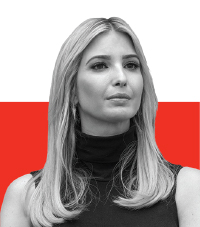
Ivanka Trump
The “first daughter” is so tight with Dasha Zhukova, the wife of Russian oligarch and Putin ally Roman Abramovich, that she reportedly invited Zhukova to attend her father’s inauguration. Ivanka has also helped her father pursue business deals in the former Soviet bloc. In 2006, Donald Trump asked formerly “Mafia-linked” businessman Felix Sater to “squire” Ivanka and her older brother, Don Jr., around Moscow, according to the Washington Post. And Ivanka was deeply involved with a failed effort to build a Trump Hotel in Azerbaijan, where the Trumps had joined forces with a family whom a government minister had accused of corruption and who had possible ties to the Iranian Revolutionary Guard.
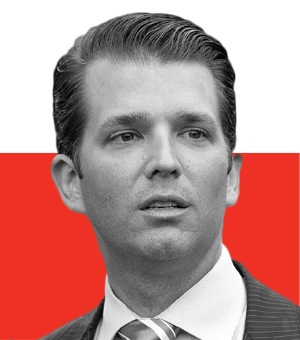
Donald Trump Jr.
“I have nothing to do with Russia,” President Trump has declared. “No deals. No loans.” That’s not quite true. Just ask his oldest son, who serves as the executive vice president of the Trump Organization. “Russians make up a pretty disproportionate cross section of a lot of our assets,” Don Jr. told investors in 2008. “We see a lot of money pouring in from Russia.” Weeks before the election, Trump’s son was reportedly paid $50,000 to address a pro-Russian group in Paris whose leader nominated Putin for the Nobel Peace Prize in December.

Eric Trump
In a May interview with Boston radio station WBUR, golf journalist James Dodson recalled asking Trump’s second-oldest son a few years ago about who was funding his father’s courses. “We don’t rely on American banks,” he replied, according to Dodson. “We have all the funding we need out of Russia.” Eric, who manages the Trump Organization with his older brother, called Dodson’s account “completely fabricated.”
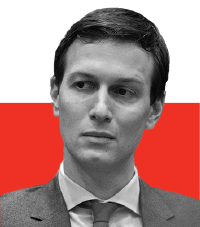
Jared Kushner
The president’s son-in-law reportedly failed to disclose “dozens of contacts with foreign leaders or officials in recent months” on his application for security clearance, including meetings with Russian Ambassador Sergey Kislyak and Sergey Gorkov, the head of Vnesheconombank, a Russian state-owned bank. According to the Washington Post, Kislyak reported back to Moscow following their sit-down that Kushner had proposed “setting up a secret and secure communications channel between Trump’s transition team and the Kremlin, using Russian diplomatic facilities.” Kushner reportedly strongly advocated Trump’s firing of FBI Director James Comey in May—further raising questions about his role. In late May, the Post and other news outlets reported that Kushner had become a focus of the FBI’s Russia probe, with investigators digging into his contacts with Kislyak, Gorkov, and other Russians. The 36-year-old real estate scion has volunteered to be interviewed by the Senate Intelligence Committee and his lawyer has said Kushner “will do the same if he is contacted in connection with any other inquiry.”
Cabinet Players
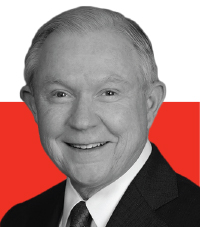
Jeff Sessions
“I did not have communications with the Russians,” the former Republican senator from Alabama said during his confirmation hearings in January. That statement quickly came back to haunt the new attorney general, after the Washington Post reported that Sessions had met at least twice with Ambassador Kislyak during the presidential campaign—including the day after then-Director of National Intelligence James Clapper suggested publicly that Russia was behind the Democratic National Committee hack. Congressional investigators reportedly are looking into whether Sessions may have had additional contact with Kislyak. In March, Sessions said he was recusing himself from any investigations of Russian election meddling, but he later played a key role in firing the senior Justice Department official overseeing the probe—Comey.
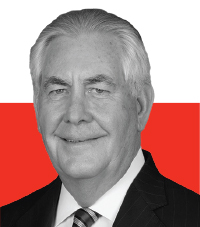
Rex Tillerson
The secretary of state and former Exxon Mobil CEO, who was once deeply involved in the company’s operations in Russia, forged deep bonds with oligarchs and Kremlin officials. In 2013, Putin awarded him the Russian Order of Friendship.
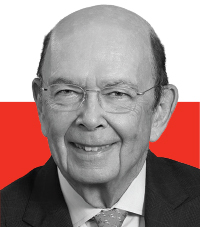
Wilbur Ross
In 2014, the billionaire (and “king of bankruptcy”) led a group of investors in a takeover of the Bank of Cyprus, an ailing financial institution with deep ties to Russia. Other top investors included oligarch Viktor Vekselberg and former KGB official Vladimir Strzhalkovsky. During Ross’ confirmation process for commerce secretary, Senate Democrats asked him for more details about the bank, including any loans made to Trump or his company. The Trump White House blocked the release of that information. But this probably isn’t the last we’ve heard about the bank: US Treasury officials are probing payments routed to lobbyist (and former Trump campaign chairman) Paul Manafort through Cyprus—a hotbed of illicit Russian cash. In March, the Associated Press reported that $1 million was directed to a Manafort-linked company in 2009 via the Bank of Cyprus.
All the President’s Men
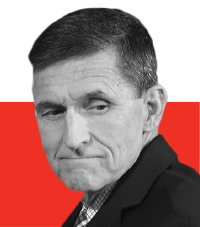
Michael Flynn
The former Defense Intelligence Agency chief memorably led Republican National Convention attendees in chants of “lock her up.” Now Flynn—ousted less than a month into his job as Trump’s national security adviser—is facing legal jeopardy of his own. According to members of the House Oversight Committee, the retired lieutenant general may have broken the law by failing to disclose payments from Russian and Turkish interests, including for a Moscow speech he gave at an event celebrating RT, the Kremlin-backed broadcaster, where he was seated next to Putin. Barack Obama personally warned Trump about hiring Flynn, whom Obama had fired from his DIA post. In January, acting Attorney General Sally Yates urgently told the Trump administration that Flynn had lied about his contacts with Ambassador Kislyak and could be vulnerable to Russian blackmail. When that news emerged in the Post three weeks later, Trump fired Flynn and blamed the media, calling Flynn a “wonderful man” who had been treated “very unfairly.” Flynn has offered to testify if offered immunity. In May, the Senate Intelligence Committee subpoenaed records from him and his business associates.
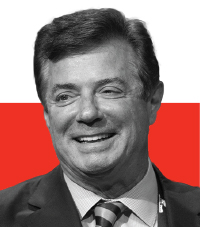
Paul Manafort
A lobbyist out of central casting, Manafort has repped some of the world’s shadiest autocrats and dictators, once flying to Angola in the ’80s amid the country’s bloody civil war to pitch warlord Jonas Savimbi. (In hacked text messages made public in February, Manafort’s daughter Andrea allegedly said her father had “no moral or legal compass” and described her family’s wealth as “blood money.”) Brought on to the Trump campaign at the urging of his former business partner Roger Stone, Manafort helped to guide it through the Republican convention. Manafort was ousted in August, as details emerged about his work for deposed Ukrainian President Viktor Yanukovych, a Putin ally, which allegedly involved $12.7 million in secret cash payments earmarked for Manafort. Scrutiny of Manafort, who is reportedly under investigation by the FBI and the Treasury Department, has expanded to include his business dealings with Oleg Deripaska, the Russian aluminum magnate and Putin ally who was denied a visa to the United States because of alleged ties to organized crime.
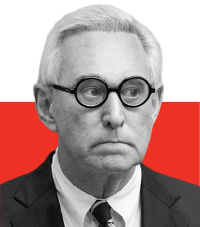
Roger Stone
The 64-year-old, who proudly sports a tattoo of Richard Nixon across his back, has made a career of political subterfuge. He cut his teeth at 19 as a Nixon dirty trickster, once hiring a GOP operative to infiltrate George McGovern’s campaign. He later co-founded the lobbying firm of Black, Manafort, Stone & Atwater in the early 1980s. He has advised Trump for decades, lobbying on behalf of Trump’s casino interests and serving as campaign manager of the real estate mogul’s short-lived presidential campaign in 2000. During the 2016 campaign, Stone seemed to possess uncanny knowledge of what WikiLeaks had in store for Hillary Clinton. On October 1, he tweeted, “Wednesday @HillaryClinton is done. #Wikileaks.” Less than a week later, WikiLeaks began publishing the emails of Clinton campaign chair John Podesta. Stone claimed he was in touch with WikiLeaks’ founder, Julian Assange, and that he exchanged direct messages with Guccifer 2.0—the handle for the alleged Russian hacker(s) who posted the stolen DNC emails. Reportedly under investigation by the FBI, Stone has strenuously denied any collusion with Russians and has volunteered to testify before Congress. But anything he says should be taken with a grain of salt—his mantra, after all, is: “Admit nothing, deny everything, launch counterattack.”
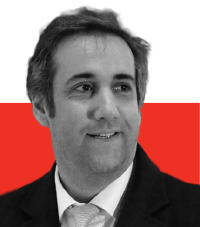
Michael Cohen
In the dossier produced by the ex-British spy Steele, Trump’s pugnacious personal lawyer surfaced as an alleged liaison to Russian officials—a charge he strongly denies. He has long-standing business and family ties to Ukraine. In January, he hand-delivered a peace plan for Ukraine and Russia to then-national security adviser Flynn, according to the New York Times. The effort also involved Trump’s business associate Sater and Andrii V. Artemenko, a Ukrainian lawmaker.

J.D. Gordon
The former Navy officer and Pentagon spokesman, who advised the Trump campaign on national security policy, has reportedly acknowledged advocating a controversial platform change at the Republican National Convention: removing language calling for the provision of “lethal defensive weapons” to Ukraine to protect the country from Russian aggression. Gordon was also one of several Trump campaign aides who met with Ambassador Kislyak during the Republican convention.
Rick Gates
As Manafort’s right-hand man, Gates helped him lobby on behalf of Putin-allied Ukrainian President Yanukovych and was involved in at least two multimillion-dollar deals with Russian oligarchs—one with Deripaska and another with Ukrainian natural-gas titan Dmitry Firtash. Like Manafort, Gates did not disclose his work as a foreign agent to the Justice Department last year, a possible violation of the law. Following the election he helped form a nonprofit promoting Trump’s agenda, but he departed after the Associated Press reported Manafort’s business dealings with Deripaska.
Michael Caputo
The veteran PR consultant ran communications for Trump’s 2016 primary campaign in New York. But before that, he spent years working in Russia, first for the US Agency for International Development and then for his own Moscow PR firm. In 2000, he was hired by Gazprom Media to burnish Putin’s image in the United States. At one point, fearing Russian organized-crime figures were hunting him, Caputo (and his parrot, August West) took refuge on a boat in Florida.
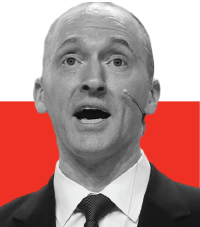
Carter Page
“I think he is an idiot”—so said one Russian spy to another of a 2013 effort to recruit Page as an intelligence asset. (“I didn’t want to be a spy,” Page has said. “I am not a spy.”) Washington foreign policy hands scratched their heads when Trump cited the obscure energy consultant, who had once worked for Merrill Lynch in Russia, as one of his campaign advisers. And Page’s July 2016 speech in Moscow, where he sharply criticized US foreign policy toward Russia, drew notice at the FBI, kicking off the bureau’s ongoing probe into Trump associates. Page, a central figure in the Trump-Russia imbroglio, recently gave a series of bizarre interviews in which he dodged questions but also seemed to implicate himself. He acknowledged meeting with Kislyak during the GOP convention and, after first denying that he had discussed the easing of sanctions with Russian officials, hedged in an interview with George Stephanopoulos: “Something may have come up in a conversation. I have no recollection.”
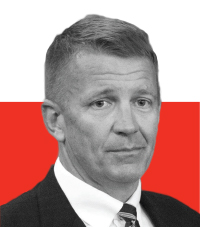
Erik Prince
In January, according to the Washington Post, the founder of notorious private security contractor Blackwater—whose sister is Trump’s education secretary, Betsy DeVos—held a secret meeting in the Seychelles with a Russian close to Putin in an effort to establish an unofficial back channel between Moscow and Trump. Prince also reportedly advised Trump aides, including Flynn, during the transition. (Prince denies both claims.)
Ezra Cohen-Watnick
The 30-year-old National Security Council official is a member of the “Flynnstones,” as the dwindling cadre of Flynn loyalists on the NSC are known. After Flynn’s firing, incoming national security adviser H.R. McMaster attempted to remove Cohen-Watnick from his position, but top Trump advisers Kushner and Steve Bannon intervened to save his job. Cohen-Watnick—known for his hawkish views on Iran and for clashing with CIA staffers—was among a trio of White House officials involved in an effort to lend credence to the president’s baseless claim that he had been wiretapped by the Obama administration. The NSC staffer—along with White House lawyers Michael Ellis and John Eisenberg—helped provide Rep. Devin Nunes with access to classified documents that the House Intelligence Committee chairman cited as evidence, wrongly, that Trump associates had been inappropriately “unmasked” in surveillance intercepts.
Investigators and Intel
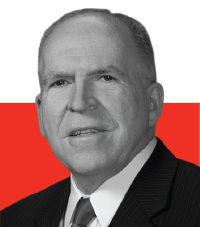
John Brennan
In August, the then-CIA director held urgent briefings with Congress’ Gang of Eight lawmakers about Russia’s efforts to get Trump elected. Before stepping down on Inauguration Day, he told Fox News that Trump lacks a “full understanding of Russian capabilities and the actions they are taking on the world.” On January 6, the National Security Agency, the CIA, and the FBI announced that “Putin and the Russian Government aspired to help President-elect Trump’s election chances when possible by discrediting Secretary Clinton and publicly contrasting her unfavorably to him.”
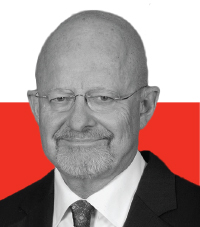
James Clapper
In May, the former director of national intelligence debunked one of Trump’s favorite pieces of spin. The president loved pointing out that Clapper once said he’d seen no evidence of collusion between the Trump campaign and Russia. But in congressional testimony, Clapper clarified that at the time he made that statement, back in March, he was not in a position to know of the FBI’s counterintelligence investigation into Trump’s Russia ties. And he testified that Trump’s denials and downplaying of Russian election interference had aided the Kremlin.

Sally Yates
Six days after Trump’s inauguration, the then-acting attorney general paid an urgent visit to the White House to alert the administration that Flynn had lied about his interactions with the Russian ambassador and could be vulnerable to blackmail. “To state the obvious: You don’t want your national security adviser compromised with the Russians,” she testified in May. Instead of acting on her warning, Trump waited another three weeks to ax his national security adviser, doing so only after the Washington Post reported on Flynn’s communications with Kislyak. A longtime Justice Department official who once served as US attorney for the Northern District of Georgia, Yates was abruptly fired in late January after she refused to enforce the administration’s hastily executed “Muslim ban.”
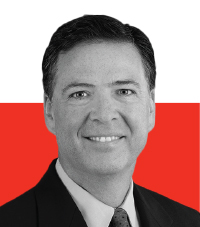
James Comey
When news of his firing flashed across a TV screen on May 9, Comey thought it was a prank. Trump had previously praised the Justice Department veteran after he briefly reopened the bureau’s investigation into Clinton’s emails just before the presidential election. Shortly after his inauguration, Trump summoned Comey for a private dinner, where he asked for the FBI director’s political loyalty, the New York Times reported; Comey promised him “honesty.” The relationship went downhill from there. Comey perhaps sealed his fate when he publicly confirmed the bureau’s ongoing probe into the Trump campaign and dismissed Trump’s claims that he was wiretapped by the Obama administration. Trump recalled of his decision to fire Comey, “When I decided to just do it, I said to myself, I said, ‘You know, this Russia thing with Trump and Russia is a made-up story.'” News soon emerged that Comey kept detailed memos of his interactions with Trump, including on the president pressuring him to quash a growing FBI investigation into Michael Flynn.
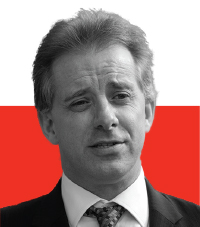
Christopher Steele
A real-life James Bond who worked undercover for MI6 in Moscow in the 1990s and later oversaw the British intelligence agency’s Russia operations, the ex-British spy was hired by a US research firm during the presidential campaign to look into Trump’s business ties in Russia. His network of sources provided him with alarming allegations, including that the Putin regime possessed compromising information on Trump and had been cultivating the real estate mogul for years. His memos also contained salacious allegations regarding Trump’s personal conduct while visiting Russia. In July 2016, Steele passed his findings on to contacts in the FBI; after the election, US intelligence officials briefed Obama and Trump about the memos. The Senate Intelligence Committee may seek to question Steele as part of its investigation into possible Russian interference in the US election.
Robert Mueller
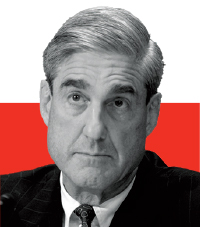
George W. Bush tapped the ex-Marine and federal prosecutor to head the FBI just days before the 9/11 attacks. He went on to lead the bureau for 12 years, becoming the longest-serving FBI director since J. Edgar Hoover. Like his friend James Comey, Mueller has an independent streak and no qualms about taking on the powers that be. During the Bush years, he nearly resigned over what he saw as a rogue White House effort with the National Security Agency’s warrantless surveillance program. As special counsel in charge of an investigation that Trump has dubbed an unprecedented “witch hunt,” Mueller is likely to again butt heads with a sitting president.
Hackers and Hacks
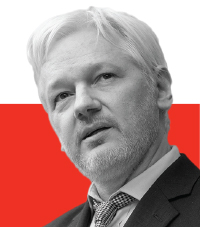
Julian Assange
Conservatives once called for the WikiLeaks founder to be locked up. During the 2016 campaign, Trump allies, including Roger Stone and Alex Jones, hailed him as a hero for releasing hacked emails from the DNC and Clinton campaign chairman John Podesta. (Stone claimed to have “back-channel communications” with the hacktivist during the campaign.) Assange—who has taken refuge in Ecuador’s London Embassy since 2012 to avoid extradition to Sweden over rape allegations (the case was dropped in May)—has claimed the source for the hacked messages was not the Russian government. The US intelligence community begs to differ. WikiLeaks’ release of the first batch of Podesta’s emails was curiously timed: It dropped less than an hour after a video clip of Trump bragging about sexual assault went public. Thereafter, the material was released in daily batches—that is, in a manner designed to inflict maximum harm to the Clinton campaign.
Help us dig deep on Trump’s ties to Russia. Make a tax-deductible monthly or one-time donation to Mother Jones today.
Guccifer 2.0
Guccifer was the handle of a notorious Romanian hacker who was sentenced to 52 months in prison in 2016. Guccifer 2.0 is the online persona that surfaced in June 2016 to take credit for hacking the DNC. The persona has claimed to be a lone wolf from Romania, but the intelligence community and outside experts have concluded that Guccifer 2.0 (which direct-messaged with Stone) is almost certainly a front for Russian intelligence. It’s a misogynistic one at that. “I’ve never met a female hacker of the highest level,” Guccifer 2.0 wrote last year. “Girls, don’t get offended, I love you.”
DC Leaks
The mysterious website and its associated Twitter feed popped up in June 2016. Over the course of the campaign, it published the hacked emails of military and political targets, including Colin Powell, NATO commander General Philip Breedlove, and the campaign staffs of Sens. John McCain and Lindsey Graham. The people behind DC Leaks, which is no longer active, claimed to be “American hacktivists,” but the US intelligence community reported that the site was a front for Russia’s military intelligence service.
RT and Sputnik
In its joint report on Moscow’s election meddling, the US intelligence community described RT, the TV network formerly known as Russia Today, as “the Kremlin’s principal international propaganda outlet.” The report noted it “has actively collaborated with WikiLeaks”; Assange hosted a show for the network in 2012. RT also has controversial ties to Flynn, who was paid to speak at a 2015 gala for RT in Moscow and frequently appeared as an analyst on the network. Another Kremlin-supported outlet, Sputnik, spread fake news while boosting Trump and attacking Clinton. In late May, newly elected French President Emmanuel Macron confronted Putin about Russian meddling in the French elections and slammed the two news outlets as instruments of “lying propaganda.”
Cozy Bear and Fancy Bear
The shadowy groups are affiliated with different branches of the Russian security apparatus. Cozy Bear has been linked to a variety of cyberattacks against government and corporate targets throughout the world, including a 2015 spear-phishing attack on the Joint Chiefs of Staff. According to CrowdStrike, the cybersecurity firm hired by the DNC, Cozy Bear first targeted the DNC in the summer of 2015. Fancy Bear penetrated the DNC’s network in April 2016, apparently unaware Cozy Bear had gotten there first. The group’s targets have ranged from the World Anti-Doping Agency to the German parliament.
Russian Connections
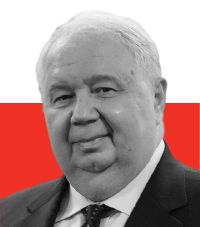
Sergey Kislyak
Following the 2016 presidential election, it came to light that Kislyak—the Russian ambassador to the United States since 2008 and formerly Russia’s deputy minister of foreign affairs—held multiple private meetings and phone conversations with Trump campaign surrogates and aides, including then-Sen. Jeff Sessions, Carter Page, J.D. Gordon, and Jared Kushner. His pre-inauguration communications with Flynn—which included discussion of US sanctions targeting Russia—led to Flynn’s ouster. Kislyak told the Washington Post he was in contact with Flynn before the election, but he declined to say what they discussed. Some US intelligence officials allege that Kislyak is not just a diplomat, but a talented spy-recruiter.
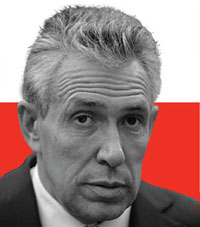
Sergey Gorkov
A graduate of the FSB’s finishing school for spies, Gorkov heads Vnesheconombank, Russia’s state-owned development bank—effectively Putin’s slush fund. With its board seeded with Kremlin ministers, including Prime Minister Dmitri Medvedev, the bank was the majority lender for the Sochi Olympics, has helped Russia gain financial power in Ukraine, and is currently under US sanctions because of Russia’s 2014 annexation of Crimea. In December 2016, Gorkov attended a meeting with Jared Kushner brokered by Kislyak—after which Gorkov appears to have gone directly to meet with Putin.
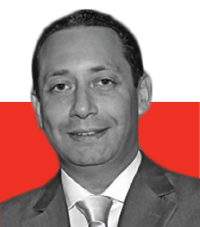
Felix Sater
This Russian American businessman (and onetime FBI informant) has quite the rap sheet, including prison time for stabbing a man with the stem of a margarita glass and a guilty plea in a Mafia-linked racketeering case. Though Trump claimed in a 2013 deposition that he wouldn’t know Sater if they were in the same room, the pair in fact worked together on a variety of projects, including a potential Moscow hotel. Once a managing partner of Bayrock Group, a real estate firm with offices in Trump Tower and alleged organized crime ties, Sater reportedly worked as a senior adviser to Trump in 2010, with a Trump Organization email address and business card. In January, Sater met with Trump attorney Michael Cohen and Andrii Artemenko, a pro-Putin Ukrainian lawmaker, to discuss a “peace plan” for Ukraine and Russia.
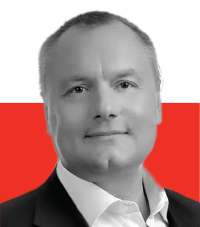
Andrii Artemenko
Currently facing an inquiry by Ukrainian prosecutors into possible treason over his collaboration with Trump associates on the Russia-friendly peace plan, the Ukrainian parliament member claims to have evidence of corruption that could oust his country’s current pro-European president. Artemenko has spent time in prison on embezzlement charges (eventually dropped) that he says were politically motivated.
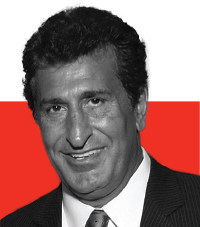
Tevfik Arif
The Kazakh founder of the Bayrock real estate firm was formerly a USSR commerce official. He hired Sater, who by 2005 became Bayrock’s managing partner; subsequently, the firm entered into deals with Trump to develop various hotel and condo projects. In 2010, Bayrock’s former finance director sued the company (but not Trump) over one of those joint ventures, the Trump SoHo, calling the building “a Russian mob project” financed with mysterious cash from Kazakhstan and Russia.
Victor Podobnyy
At a January 2013 energy conference in New York, Podobnyy met future Trump adviser Carter Page. At the time, Podobnyy was a clandestine Russian intelligence agent working under diplomatic cover in Russia’s UN delegation. For the next five months, Page met with, emailed, and provided documents to Podobnyy about the energy business, believing that Podobnyy’s UN position would help him broker deals in Russia. All the while, Podobnyy and one of his colleagues attempted to recruit Page as an asset. In 2015, Podobnyy was busted by the FBI for being an unregistered agent of a foreign government, along with two other Russians, but avoided arrest and prosecution because of his diplomatic immunity.
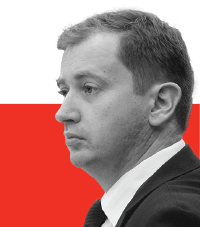
Sergei Millian
Update, November 12, 2021: An earlier version of this item noted that Sergei Millian was reportedly a source for the Steele dossier, as reported by the Washington Post in 2017. In 2021, the Post retracted part of its reporting on Millian and the dossier and said it “could no longer stand by the accuracy of” that report. The item has been appropriately updated.
The Belarusian American president of the Russian American Chamber of Commerce in the USA first met Trump in 2007 at Moscow’s Millionaire Fair. Millian—whose given name is Siarhei Kukuts—says he later signed an agreement with the Trump Organization to market Trump properties to buyers in Russia and the former Soviet bloc.
The Oligarchs
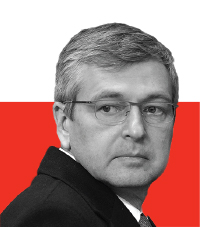
Dmitry Rybolovlev
Known in Russia as the “fertilizer king,” this billionaire oligarch bought a Palm Beach mansion from Trump in 2008 for $95 million—more than twice what Trump paid for it in the mid-2000s. It was a surprisingly high price, given Florida’s crashing real estate market and an appraisal for much less. At least twice during the campaign, Rybolovlev’s plane was in the same location as Trump’s, fueling speculation of deeper ties.
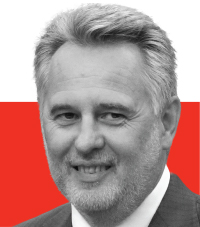
Dmitry Firtash
For years, this Ukrainian natural-gas titan cut deals with Russia’s state-owned gas company, Gazprom. Putin’s administration sold him Russian gas at a steep discount, and Firtash resold it in Ukraine, reinvesting some of the profits into electing pro-Putin politicians, including Viktor Yanukovych. In 2008, Firtash partnered with Manafort on an $885 million deal to buy and redo a New York hotel. The deal fell apart, but a few years later Firtash and Manafort were together again—this time named in a lawsuit alleging that Firtash laundered money through a New York investment fund established with Manafort’s help to send back to Ukraine for political use. (The case was dismissed in 2015.) Since 2013, the United States has sought to extradite Firtash from Austria to face bribery charges in an unrelated case.

Oleg Deripaska
This billionaire aluminum magnate was denied entry to the United States in the mid-1990s because of suspected ties to the Russian Mafia. A few years later, Manafort helped Deripaska try to secure a visa to come to the United States. In 2006, Deripaska reportedly hired Manafort for a $10 million annual contract; Manafort reportedly pitched Deripaska on a plan to bolster Putin’s image in the United States and elsewhere. In 2014, Deripaska sued Manafort for accepting a $19 million investment and then failing to account for the funds. (The suit is pending.)
Aras Agalarov
This billionaire’s real estate company, Crocus Group, has secured multiple contracts from the Kremlin, and Agalarov personally received a medal of honor from Putin. In 2013, Agalarov partnered with Trump to bring the Miss Universe pageant to Moscow, where it was hosted at one of his lavish properties. The day before the pageant, Agalarov helped organize a meeting for Trump with more than a dozen of Russia’s top moguls. Agalarov claims he and Trump made a deal to build a Trump Tower in Moscow following the pageant, a venture that never materialized.
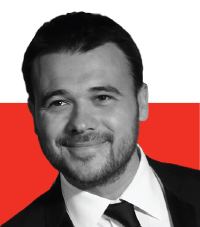
Emin Agalarov
Trump starred in a 2013 music video with this middling Russian pop star (the son of Aras Agalarov). It was shot on the morning of the Miss Universe pageant in Moscow, where Emin performed two numbers. In a March 2017 interview, Emin described an ongoing relationship—including “messages” and a handwritten note—with the Trump family that continued after Trump’s inauguration. “Now that he ran and was elected, he does not forget his friends,” Emin said.
Viktor Vekselberg
The Ukrainian oil baron with past ties to the Kremlin is reportedly worth $12.8 billion. Through his company Renova, he holds a 5.5 percent stake in the Bank of Cyprus, where Wilbur Ross served as vice chairman of the board until his confirmation as US commerce secretary in March.
Watchdogs and Lapdogs
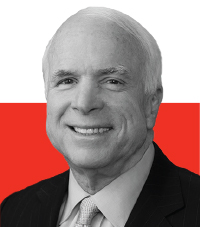
Sen. John McCain
After the presidential election, McCain obtained a copy of Steele’s dossier, passing it to Comey during a December meeting. “I think there’s a lot more shoes to drop from this centipede,” the six-term senator and chairman of the Senate Armed Services Committee said this spring. While his fellow Republicans have tried to squelch probes into the scandal, McCain has pressed for a more aggressive inquiry, calling for a special congressional select committee or an independent commission. In mid-May, he said the growing scandal had reached “Watergate size and scale.”
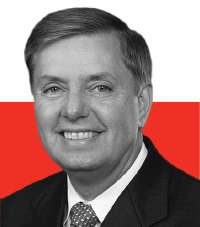
Sen. Lindsey Graham
On the campaign trail, the South Carolina senator was a harsh critic of Trump, calling the real estate mogul a “jackass” who lacked “the temperament or judgment to be commander in chief.” Like McCain, Graham is one of few Republicans who have not sought to downplay the Russia scandal. His Senate Judiciary subcommittee has mounted an investigation into the Kremlin’s election interference that Graham has vowed is “going to find out all things Russia.”
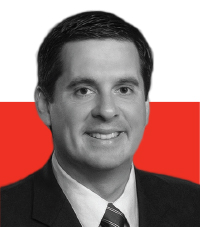
Rep. Devin Nunes
The House Intelligence Committee chairman’s brazen attempt to provide cover for Trump’s wiretapping allegations backfired in epic fashion. After Nunes’ White House-aided effort was unmasked, he was forced to recuse himself from the Intelligence Committee’s probe of Russian election meddling. Now the California congressman, who served on Trump’s transition team, is himself under investigation by the House Ethics Committee for possibly disclosing classified information. At a private GOP fundraiser in April, Nunes echoed Trump’s ongoing claim that the purpose of the congressional investigations into Russian election interference was to justify Hillary Clinton’s loss.
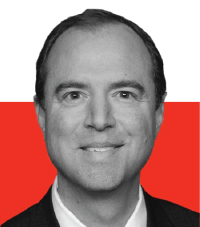
Rep. Adam Schiff
The ranking Democrat on the House Intelligence Committee has been described as “Trump’s public prosecutor.” During the panel’s first hearing on the Russia matter, Schiff laid out what amounted to an indictment in his lengthy opening statement. In his previous career as a federal prosecutor, he brought charges against the first FBI agent indicted for espionage. The congressman has been calling for an independent investigation from the start and clashed repeatedly with Nunes.
Sen. Mark Warner
One of the only Democrats with any real say in how the Russia probe plays out, the top Democrat on the Senate Intelligence Committee says the investigation is “the most important thing I’ve ever done.” It wasn’t until Warner threatened to boycott the hacking probe that Trump-boosting Sen. Richard Burr agreed to include possible Trump-Russia links in the investigation. Warner now says he has full “confidence” in Burr, but various reports indicate he has become frustrated with Burr’s slow pace.
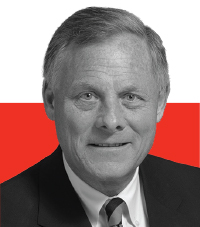
Sen. Richard Burr
“There’s not a separation between me and Donald Trump,” Burr said during his reelection campaign. Burr also worked on the Trump campaign’s national security team and takes credit for instigating the FBI’s investigation into Clinton’s emails. The three-term Republican and chairman of the Senate Intelligence Committee was enlisted by the White House in February, along with Nunes, to personally call reporters to push back on stories concerning Trump associates and Russia. No surprise, Burr originally said his panel’s investigation would not involve Trump’s campaign. He has since changed his tune, but concerns remain about whether he can lead a full and fair inquiry.
The Hyperventilators
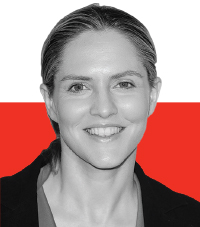
Louise Mensch
Of all the self-appointed detectives propagating their theories on Twitter, Mensch, a novelist and former Conservative member of the British Parliament, is the most bombastic and controversial. The day before the presidential election, Mensch, who’s known for making fantastical claims, reported that the Foreign Intelligence Surveillance Court had granted the FBI a warrant to surveil Americans with ties to Trump as part of its investigation. Another two months would pass before the New York Times confirmed the existence of a warrant from the court in the case of Carter Page. Since then, Mensch has made claims that Page traveled to Moscow last July to explicitly request Russia’s help in hacking the election, delivering a prerecorded tape of Trump offering to make US policy more beneficial to Putin if elected. No reputable media have reported this.
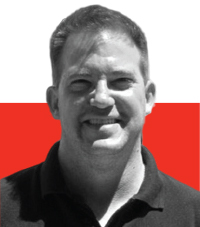
John Schindler
The former NSA analyst declared in August 2016 that, regardless of who became president, Putin had already won the election by meddling with the American political system. Oddly, Schindler wrote about this in Jared Kushner’s New York Observer, where Schindler is a regular columnist. (Kushner has since stepped down as the paper’s publisher.) In his column and Twitter feed—which Schindler liberally peppers with blindly sourced intel community gossip—he confidently suggests it’s only a matter of time before Trump’s collusion with the Kremlin is revealed. Sample tweet: “Trump knows his illegal ties to Moscow will be exposed soon. Hence his panic. He will do anything to save himself. Even provoking civil war.”



